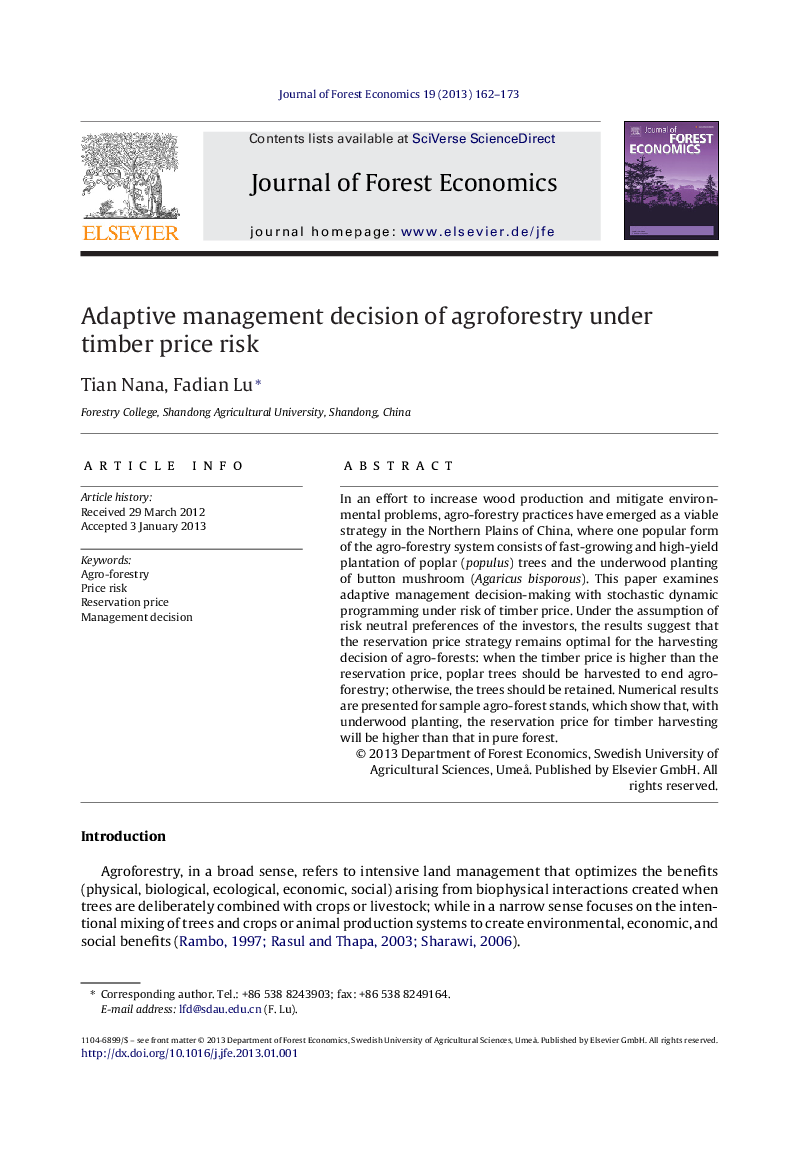| Article ID | Journal | Published Year | Pages | File Type |
|---|---|---|---|---|
| 92101 | Journal of Forest Economics | 2013 | 12 Pages |
In an effort to increase wood production and mitigate environmental problems, agro-forestry practices have emerged as a viable strategy in the Northern Plains of China, where one popular form of the agro-forestry system consists of fast-growing and high-yield plantation of poplar (populus) trees and the underwood planting of button mushroom (Agaricus bisporous). This paper examines adaptive management decision-making with stochastic dynamic programming under risk of timber price. Under the assumption of risk neutral preferences of the investors, the results suggest that the reservation price strategy remains optimal for the harvesting decision of agro-forests: when the timber price is higher than the reservation price, poplar trees should be harvested to end agro-forestry; otherwise, the trees should be retained. Numerical results are presented for sample agro-forest stands, which show that, with underwood planting, the reservation price for timber harvesting will be higher than that in pure forest.
